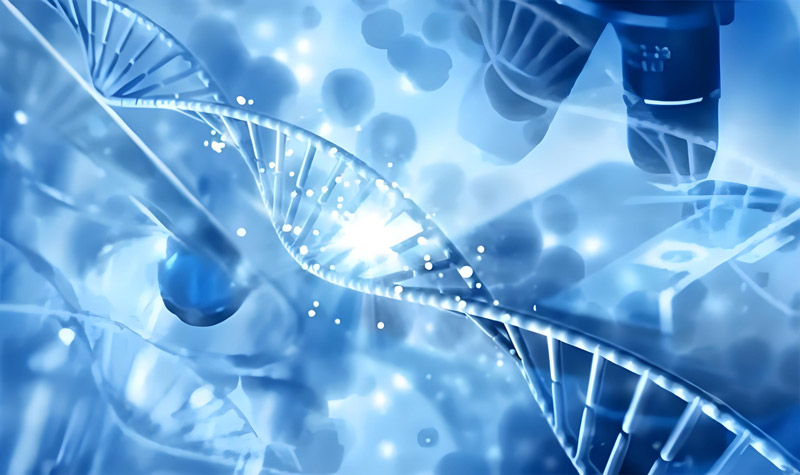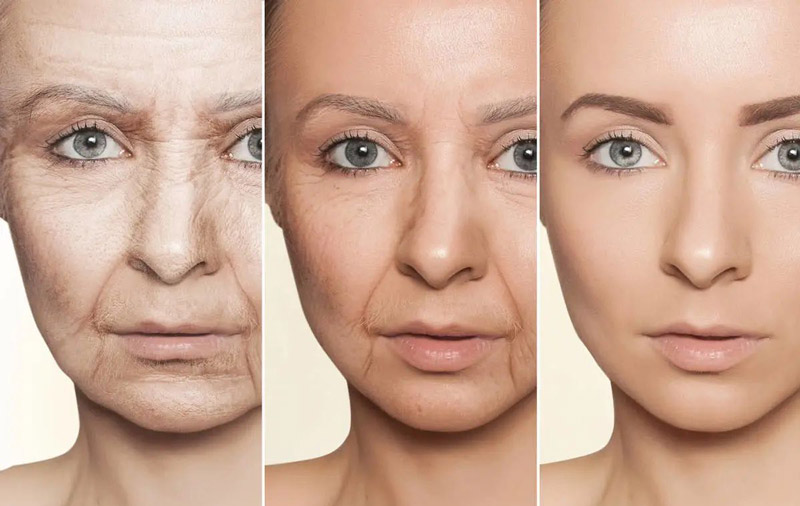In 2013, research from Harvard Medical School made NMN a rising star in the field of anti-aging. In the past 10 years, the research on NMN has become increasingly popular, and heavyweight studies have been continuously published.
In the first half of 2023, from clinical research results to space application potential, from improving chronic hepatitis B to losing weight, from cardiovascular health to anti-tumor, NMN still leads the anti-aging race with a strong momentum.
This issue of "Life Knowledge" brings a review and highlight analysis of NMN research in mid-2023.
1. Continuous clinical research achievements in NMN
Since Professor Shinichiro Imai's research team published the first heavyweight clinical study of NMN in the top tier journal Science in 2021, the subsequent clinical research results of NMN have been receiving attention. People expect the safety and efficacy of NMN to be validated in more clinical studies.
More than 2 years have passed, and NMN has lived up to expectations: the safety of NMN has been validated in clinical studies time and time again, and long-term, high-dose (maximum dose 2000mg/day) administration is considered safe;
More beneficial effects of NMN on the human body have been discovered, covering energy, exercise ability, skin condition, weight management, blood sugar, blood pressure, etc.
In the first half of 2023, clinical studies from the United States and Japan received attention, and the effectiveness of NMN in improving metabolism is encouraging.
Harvard Medical School
NMN helps with weight loss, lowering cholesterol, and blood pressure

In 2023, a research team led by Professor David Sinclair from Harvard Medical School published in The Journal of Clinical Endocrinology&metabolism: In this clinical study involving overweight or obese adults aged 45 and above, consuming 2000mg of NMN daily for 28 consecutive days not only reduced weight, but also lowered total cholesterol, including low-density lipoprotein cholesterol known as "bad cholesterol", And it helps to lower blood pressure.
Japanese Studies
NMN has the potential to reduce arteriosclerosis

In February 2023, Japanese scientists published a randomized, double-blind, placebo-controlled, parallel group clinical trial on the effects of taking NMN supplements on biochemical and metabolic health parameters in the human body in Scientific Reports.
36 healthy middle-aged individuals took 250mg of NMN or placebo daily for 12 weeks, demonstrating good tolerability. NMN safely and effectively improved NAD+metabolism in healthy middle-aged individuals, and demonstrated the potential to alleviate arteriosclerosis.
A study by Harvard Medical School found that overweight or obese individuals have a higher cardiovascular risk compared to healthy individuals, and the improvement brought by NMN is also more significant.
In addition, the rapid improvement of 28 days is likely related to the high dosage of 2000mg/day adopted by Harvard Medical School.
osaka university
NMN is expected to prevent diabetes

In 2023, a study published by Osaka University in Japan in Clinical Nutrition ESPEN showed that oral administration of 250 milligrams of NMN per day for three months can significantly increase plasma NAD+levels and increase serum insulin levels fivefold. This shows that NMN can play an active role in preventing diabetes.
Individual absorption differences of single supplement NMN are significant
In addition to the beneficial effects of NMN, researchers have also found some interesting situations. A study by Osaka University found that the distribution of NMN levels among participants was widespread, with two participants exhibiting very high levels of NMN during the second and third months of taking NMN, indicating significant individual differences in the absorption and utilization of NMN.

However, overall, the levels of NMN and NAD+in participants improved during NMN administration, but returned to near initial levels after one month of discontinuation.
In principle, the individual differences in absorption and utilization of NMN are not without improvement.
The transformation and utilization of NMN in the body is actually the result of team collaboration, which requires the participation of NMNAT and NAMPT transferases, as well as the supplementation of methyl groups to promote metabolism.

Previously, many studies have found that the combined use of NMN with components such as resveratrol, anthocyanins, ginsenosides, PQQ, etc. is more effective. Professor David Sinclair of Harvard Medical School, known as the "Godfather of NMN," also stated that supplementing methyl groups while eating NMN is in line with relevant principles.
Therefore, while supplementing NMN, finding ways to promote absorption, transformation, and metabolism is an important way to improve the effect.
2. NMN assisted stem cell therapy
Stem cells have always been well-known in the field of anti-aging, and NMN, as a rising star in the anti-aging field, is also known as "edible stem cells.".
In 2023, research from the State Key Laboratory of Bioreactor Engineering of East China University of Science and Technology found that the strong combination of NMN and stem cells will bring better results.
East China University of Science and Technology
NMN enhances the growth and migration function of stem cells
Human umbilical cord mesenchymal stem cells (hUC MSCs) are widely used in clinical treatment, such as degenerative diseases, metabolic diseases, and inflammatory diseases.
However, the microenvironment of inflammatory tissue may cause oxidative stress and induce aging in transplanted hUC MSCs, thereby reducing the proliferation and migration ability of stem cells and affecting the ultimate therapeutic effect.
Due to previous studies confirming the strong antioxidant properties of NMN and coenzyme Q10, researchers exposed stem cells to toxic hydrogen peroxide (H2O2) and treated them with NMN or coenzyme Q10.

It was found that both can promote stem cell growth, reduce reactive oxygen species (ROS) levels, and prevent stem cells from entering an aging state (dysfunctional pro-inflammatory state).
Due to the need for stem cells to locate the site of injury in order for treatment to be effective, researchers tested the effects of NMN and Q10 on stem cell migration.
Interestingly, NMN increased stem cell migration threefold, while Q10 had no effect. These results indicate that NMN is likely to become a golden partner for stem cell therapy and anti-aging.
3. NMN improves multi organ aging
The reason why NMN has become an anti-aging star is because it can safely and effectively increase NAD+levels, activate the longevity protein Sirtuins family, repair cellular DNA damage, and help the body cope with various aging problems.
In previous studies, NMN has been shown to help repair damage to multiple organs in the body and delay their aging.
In 2023, the research of NMN in repairing lung injury, improving chronic hepatitis B, regulating intestinal flora, improving reproductive aging and other aspects has again verified this point.
Sichuan University
NMN repair of lung injury
In 2023, Sichuan University published a study in the journal Nutrients: NMN can reduce lung damage in silicosis model mice caused by inhalation of silica.
Silicosis is one of the fastest growing and most pathogenic types of pneumoconiosis, accounting for approximately 39% of cases. Inhalation and deposition of silica dust are its main risk factors.
Silicosis can promote cell damage by increasing reactive oxygen species (ROS) to generate oxidative stress. NMN alleviated lung injury caused by silica, reduced ROS, reduced oxidative stress, and increased Glutathione.

The protective effect of NMN on the lungs goes beyond this. Due to the fact that aging typically increases the risk of lung injury and disease, advanced age is accompanied by an increased inflammatory response that attacks the lungs, and the anti-aging effect of NMN can bring positive improvements to lung aging and injury.
Previous studies have shown that NMN can effectively improve the aging of alveolar epithelial cells, reduce oxidative stress and inflammation, and alleviate pulmonary fibrosis.
University of Parma
NMN improves chronic hepatitis B
Persistent infection of hepatitis B virus (HBV) will lead to chronic liver disease, which is called chronic hepatitis B.
According to a report by the World Health Organization (WHO), there were approximately 1.5 million new cases of HBV infection, 296 million chronic infections, and 820000 deaths from related diseases such as liver failure, cirrhosis, or hepatocellular carcinoma caused by HBV infection worldwide in 2019.
In 2023, the University of Parma, Italy, published in the Journal of Hepatol, found that in chronic hepatitis B infection, the level of reactive oxygen species (ROS) caused by mitochondrial dysfunction increased, which could lead to increased DNA damage of specific CD8 T cells (lymphocytes that play an important role in clearing hepatitis B virus).

This is related to the acceleration of NAD+consumption by CD38. Supplementing NMN and inhibiting CD38 activity can both restore specific CD8 T cell function.
In previous studies, NMN has been repeatedly proven to have a protective effect on the liver, including sobering up and protecting the liver (improving alcoholic fatty liver), reducing liver oxidative stress, and improving protein acetylation in aging liver.
In this study by Italian scientists, in addition to NMN continuing to exert its hepatoprotective effect, another important role that cannot be ignored is CD38.
CD38 is a protein present on immune cells, and multiple studies have shown that the decrease in NAD+levels with age is caused by excessive activity of CD38.
It can be seen that supplementing NMN and inhibiting CD38 activity are a dual approach to achieving twice the result with half the effort in anti-aging.
Tsinghua University
NMN can inhibit the growth of breast cancer
Since NMN's emergence in the field of anti-aging, there have been doubts about whether increasing NAD+levels is carcinogenic. However, an increasing number of studies have shown that NMN not only does not cause cancer, but also helps combat tumors.
In January 2023, the research team of Tsinghua University published a study in the internationally famous scientific research journal Oncogene, which shows that NMN can limit the growth of triple negative breast cancer (TNBC) tumors.

In addition, NMN significantly improves the chances of survival after cancer attacks and prevents cancer metastasis. This result may bring hope for inhibiting the growth and diffusion of TNBC.
Nanjing Medical University
NMN can reverse oocyte aging
Compared to other systems in the body, the aging rate of the female reproductive system is particularly fast, and the ability of oocytes (eggs) to fertilize decreases with age.

In February 2023, a research team from Nanjing Medical University published a study in Cell Propagation, which showed that butylbenzyl phthalate (BBP) can accelerate oocyte aging, reduce fertilization rate, and NMN can reverse oocyte aging, preventing aging from leading to DNA damage, mitochondrial damage, and cell death.
yangzhou university
NMN improves gut microbiota imbalance caused by sleep deprivation
In the past, we generally believed that human health was determined by genetic, epigenetic, and environmental factors (mainly diet and lifestyle) and their complex interactions. However, now more and more research has found that the gut microbiota plays a crucial role in maintaining health and anti-aging.

In January 2023, a study published by Yangzhou University in Advanced Science found that sleep deprivation can cause dysbiosis of the gut microbiota, and NMN can improve this dysbiosis and restore intestinal colonization resistance.
4. NMN protects brain and heart health
Among the many problems brought about by aging, the aging of the brain and heart is particularly concerning. On the one hand, it is because the functions of the brain and heart are particularly important.
On the other hand, it is because the brain and heart face significant challenges in rehabilitation after aging or injury.
For example, cognitive impairment such as Alzheimer's disease, as well as damage caused by ischemia or hypoxia caused by myocardial or cerebral infarction, currently do not have particularly effective treatment methods.
Therefore, preventing heart and brain aging and improving heart and brain function are important research topics.
So, it is not difficult to understand that after the anti-aging effect of NMN is discovered, there will be a lot of research follow-up on NMN improving heart and brain health.
In just over half of 2023, multiple studies have been published on NMN delaying central nervous system aging, repairing traumatic brain injury, improving cognitive impairment, and improving myocardial infarction.
Japanese&American Studies
NMN delays central nervous system aging

On January 25, 2023, research teams from the Kobe Biomedical Research Institute in Japan, the Tokyo Institute of Aging, and the University of Washington School of Medicine in the United States published a research report in the international research journal NPJ Aging, proving that aging animals recover the hypothalamic arcuate nucleus (neurons aggregated in the medial base of the thalamus), ventromedial hypothalamus (injury causing obesity and gonadal atrophy), and The lateral hypothalamus (responsible for controlling appetite and regulating satiety) NAD+levels reach younger levels, further proving that taking NMN is an effective anti-aging method.
Wuhan University Central South Hospital
NMN repair of traumatic brain injury
In January 2023, Wuhan University Central South Hospital published a study in the International Journal of Medical Sciences stating that NMN can alleviate cognitive impairment by minimizing nerve damage and inflammation after traumatic brain injury (TBI).

Specifically manifested as:
NMN significantly improved learning and memory in animals with traumatic brain injury (TBI);
NMN inhibits neural damage caused by TBI in animals;
NMN alleviated the inflammatory gene activity characteristics in the brain after TBI.
South China Agricultural University
NMN restores cognitive impairment caused by harmful compounds
Nonylphenol (NP) is a harmful compound banned in the European Union and is often used in detergents such as laundry detergent. Exposure to high-dose NP environments not only leads to reproductive damage, but also impairs cognition.

A study published by a research team from South China Agricultural University in 2023 in Food and Chemical Toxicology showed that exposure to NP can lead to learning and memory impairments in rats, while low-dose NMN can restore cognition.
NMN increases the number of learning related receptors called serotonin receptors in the brain region (hippocampus) that play a crucial role in learning and memory, indicating that NMN can help prevent cognitive decline caused by the harmful compound NP.
Nanjing Medical University
NMN improves myocardial infarction
Acute myocardial infarction accounts for 80% of global ischemic heart disease deaths, and its incidence continues to increase every year. The main cause of acute myocardial infarction is myocardial ischemia and hypoxia after coronary artery occlusion (vascular occlusion), leading to fatal cardiac tissue damage.
Previous studies have shown that NMN has multiple effects, including maintaining mitochondrial homeostasis in the heart, protecting the heart from ischemia/reperfusion injury, reducing cardiac fibrosis, and inhibiting cardiomyopathy.

In 2023, a study published by Nanjing Medical University in Stem Cell Reviews and Reports demonstrated that NMN can improve myocardial infarction and promote angiogenesis. Extracellular vesicles derived from mesenchymal stem cells have cardioprotective effects in acute myocardial infarction.
In a rat model of heart disease, NMN can improve heart function, increase angiogenesis, and reduce tissue damage by regulating hepatocyte derived vesicles.
5. NMN fat loss adds new evidence
In the population taking NMN, improvements in energy and metabolism are two common feedbacks.
Among them, the improvement of metabolism can not only help weight management, but also reduce the risk of metabolic diseases such as diabetes.
There have been many studies in the past that have proven the weight loss effect of NMN, and the 2023 study by Japanese scientists further revealed the weight loss principle of NMN.
Shizuoka University
Revealing the principle of NMN fat reduction
In April 2023, the Graduate School of Comprehensive Pharmacy and Nutrition Sciences at Shizuoka University in Japan published a study online in Biochemistry and Biophysics Reports, which found that NMN can significantly reduce subcutaneous fat mass and fat cell size.

The principle behind it is:
A decrease in triglyceride lipase (ATGL) leads to an increase in fat mass;
NMN induces lipolysis by regulating ATGL expression through the SIRT1-AMPK axis in adipocytes;
NMN can significantly reduce the subcutaneous fat mass and the size of adipocytes in high-fat diet mice.
6. NMN Aerospace Application Potential
In the microgravity environment of space (commonly known as the "weightlessness" state), both muscles and bones are subjected to less force, and prolonged exposure to this state by astronauts can lead to muscle and bone loss.
Therefore, NASA has long supported NMN related research aimed at protecting astronauts and reducing musculoskeletal loss during space exploration.
The research conducted by Xi'an Jiaotong University in 2023 once again validated the ability of NMN in this area, demonstrating its potential for aerospace applications.
Xi'an Jiaotong University
Simulated space flight experiments reveal NMN's excellent bone preservation ability

In May 2023, a research team from Xi'an Jiaotong University published a study in the international scientific journal Cell Stress&Chaperones, which showed that NMN can restore bone mineral density in space flight microgravity animal models, which is an indicator of increased bone strength. Meanwhile, NMN can also alleviate destructive bone oxidative stress.






